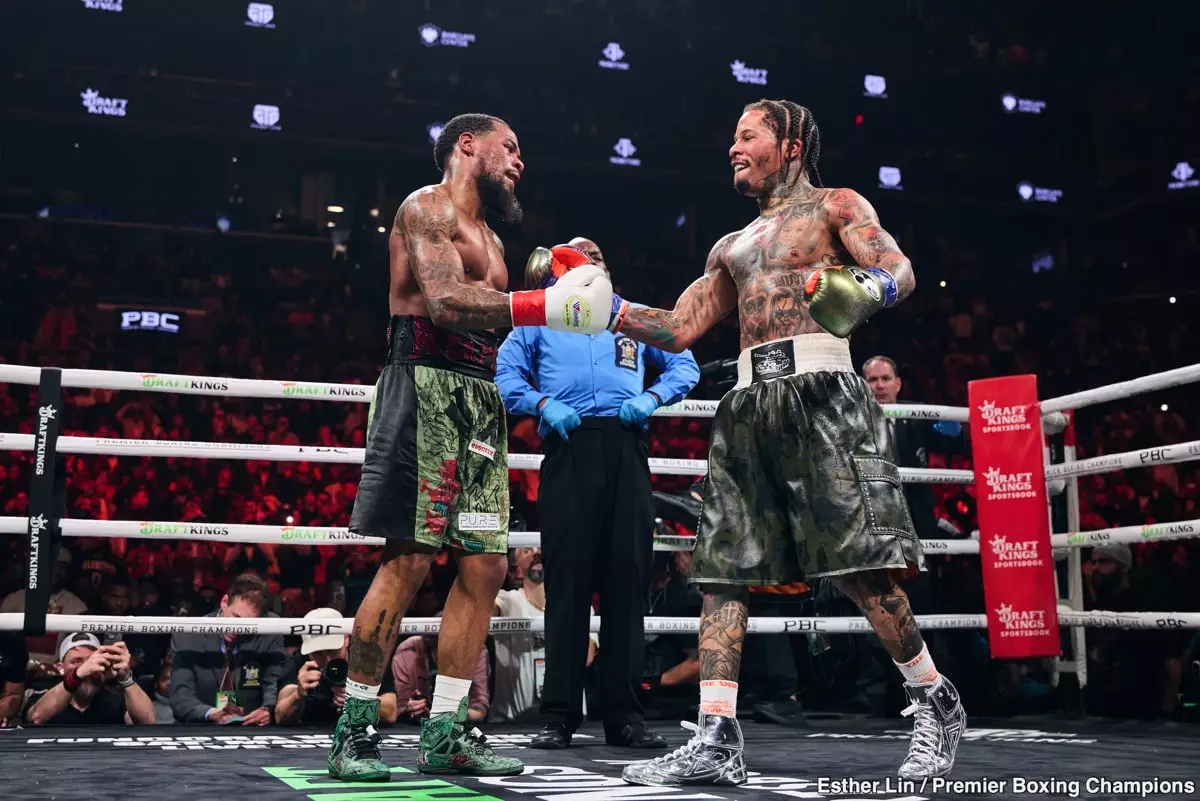In the vibrant and competitive landscape of professional boxing, controversial moments can shape the trajectory of fighters’ careers, as well as generate endless debates among fans and analysts. Last Saturday’s lightweight title fight between Gervonta “Tank” Davis and Lamont Roach added yet another layer of intrigue to the sport. The bout, which took place at the Barclays Center in Brooklyn, New York, culminated in a ninth-round moment that could arguably be termed a pivotal turning point in the fight. However, the absence of a crucial call—a knockout that was not ruled as such by the referee—raises fundamental questions about officiating standards in boxing, and it opens the floor for discussions about the necessity of a rematch.
Before delving into the implications of this specific incident, it’s essential to acknowledge the broader atmosphere surrounding boxing’s regulatory bodies. Gilberto Mendoza, the president of the World Boxing Association (WBA), has expressed intent to pursue a rematch between Davis and Roach, sparking debates about the power and authority of boxing organizations over their champions. The question remains whether these organizations can genuinely influence their notable fighters or simply serve as advisory bodies in considering future matchups.
Referees are integral to ensuring a fair contest, but the decision-making process during a high-stakes match can often become muddied. In this case, Roach scored what many observers believe to be a legitimate knockdown against Davis, who subsequently claimed he had hair grease obstructing his vision. The referee not only neglected to count the knockdown but also allowed Davis a moment to return to his corner for assistance, further complicating the situation. This decision inevitably raises essential questions: How reliable are referees in their judgments? Are they adequately prepared to handle all the nuances that can arise during a fight? When do personal biases come into play, consciously or unconsciously?
The incident at hand underscores a broader, systemic issue in boxing officiating, where a lack of consistency can lead to fighters being victimized by improper calls. If referees can allow fighters to escape a knockdown due to perceived external factors, a dangerous precedent is set, potentially leading to further inconsistencies in officiating. This inconsistency not only affects fighters’ careers but also leaves fans questioning the integrity of the sport.
Despite Mendoza’s declaration of intent regarding a rematch, the feasibility of such a showdown is questionable. Gervonta Davis, a fighter known for his ability to generate substantial revenue in the boxing world, has publicly indicated that he has different plans. He has suggested that he is not interested in giving Roach an immediate rematch and hinted at pursuing higher-profile fights that might yield more financial rewards. Speculation points to a potential matchup with social media star Jake Paul, which would significantly eclipse a fight with Roach in terms of revenue and publicity.
The evolving dynamics of boxing illustrate a conflict between maintaining traditional championship matches and catering to commercial interests. Boxing organizations might find themselves in a precarious position: they may issue orders for mandatory rematches, but fighters like Davis, whose star power transcends the belts they hold, often possess the autonomy to dictate their own paths.
The Future of the WBA Belt
Should Davis opt to vacate his WBA title rather than face Roach, the future of that championship does hang in the balance. The likely contenders, Floyd Schofield and Andy Cruz, await the opportunity to contest for the now-vacant belt. However, this brings into focus the overarching dilemma within boxing’s landscape—how the sport’s governing bodies can retain relevance and authority in an age where the commercial appeal of fighters often overshadows the significance of traditional titles.
As fans and analysts navigate through the unfolding drama surrounding Davis, Roach, and the WBA, it becomes imperative to not only focus on potential rematches or organizational influence but also on the integrity of boxing as a sport. Will the backlash from fans and analysts prompt necessary reforms in officiating procedures? Or will boxing continue to wrestle with these issues, allowing them to perpetuate in future generations?
Ultimately, the narrative primarily revolves around ensuring that athletes get their due recognition and fair treatment in the ring. Whether it results in a rematch between Davis and Roach or reforms in officiating standards, the core objective must remain the preservation of integrity and fairness within this beloved sport.

